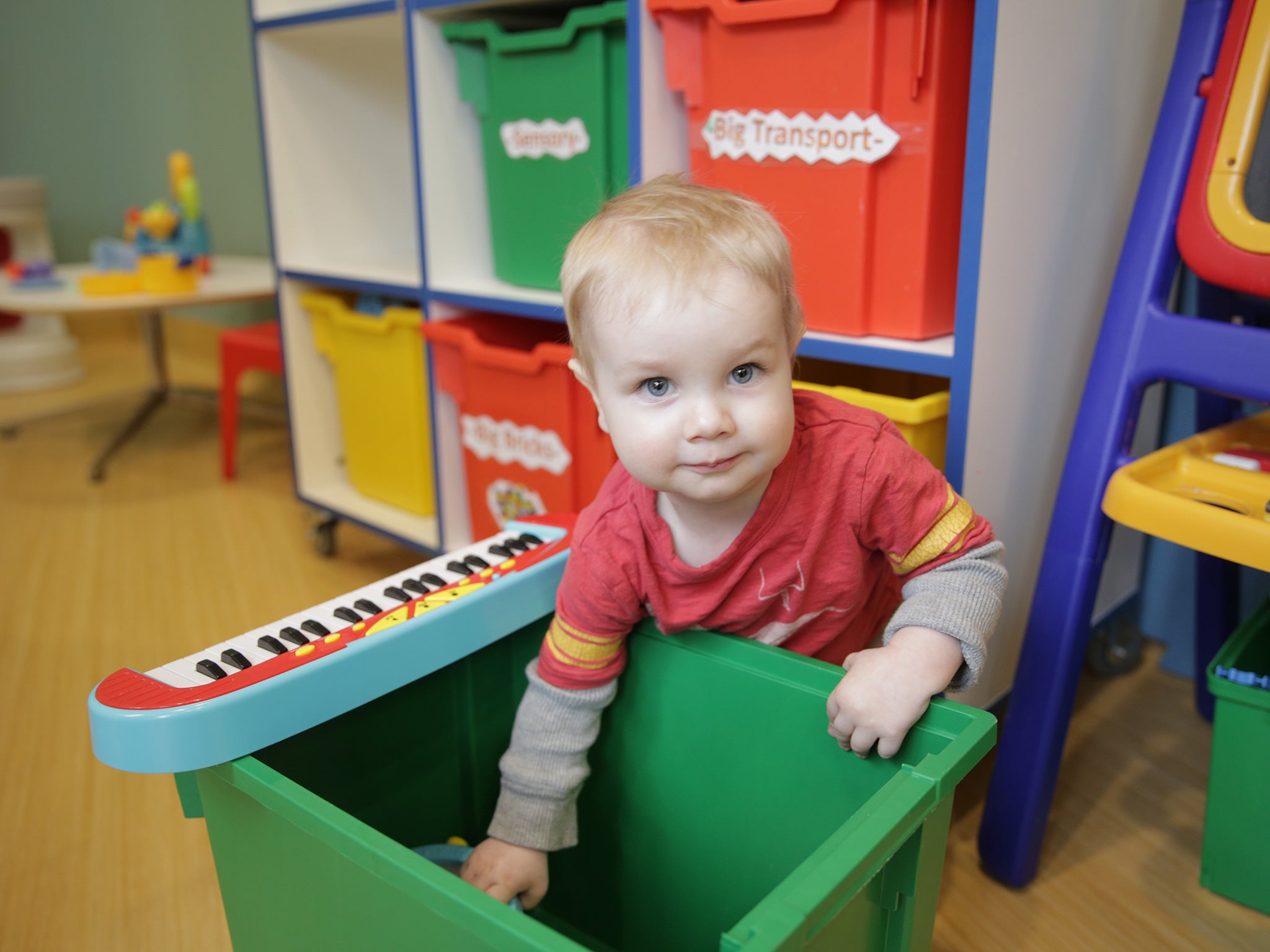How an artificial heart keeps Elliott Livingstone alive as the two-year-old waits for a donor
'Even though we are waiting, we know we are waiting for something that may or may not come'

Your support helps us to tell the story
From reproductive rights to climate change to Big Tech, The Independent is on the ground when the story is developing. Whether it's investigating the financials of Elon Musk's pro-Trump PAC or producing our latest documentary, 'The A Word', which shines a light on the American women fighting for reproductive rights, we know how important it is to parse out the facts from the messaging.
At such a critical moment in US history, we need reporters on the ground. Your donation allows us to keep sending journalists to speak to both sides of the story.
The Independent is trusted by Americans across the entire political spectrum. And unlike many other quality news outlets, we choose not to lock Americans out of our reporting and analysis with paywalls. We believe quality journalism should be available to everyone, paid for by those who can afford it.
Your support makes all the difference.Two-year-old Elliott Livingstone is a tough little boy. So far he’s spent nine months of his short life at Great Ormond Street Hospital (GOSH) waiting for a heart transplant, but his cheeky character gives a smile to everyone he meets.
He has even named his artificial heart, the Berlin Heart, after his favourite children’s character, Thomas the Tank Engine, and proudly walks around the hospital charming the nurses and female doctors. None of this though, can hide the fact that Elliott is very ill and urgently needs a new heart. And he cannot leave GOSH until he gets one.
Elliott was first diagnosed with dilated cardiomyopathy at two weeks old, but it was in February of this year that he was rushed to GOSH with heart failure. The following month, during a gruelling surgical procedure, he was fitted with the artificial external heart.
He’s confined to the hospital and is closely monitored but Elliott is able to walk around his ward and occasionally other parts of the hospital with the help of his artificial heart. Tubes and pumps sit outside of his body with blood flowing in and out of his chest via the Berlin Heart, which is supported on a trolley.
He has, his mother Candace, 32, explains, spent a huge amount of time at GOSH hooked up to an artificial heart, with all the risk of stroke and blood clots that entails.
“We have accepted that this is our new normal,” Candace, from Hook in Hampshire, said. “It’s only when you take a step back that you realise it is not normal. But if you thought the whole time ‘this is a horrible situation’ you wouldn’t be able to get through it.
“We just think this is where we are, this is the way things are. We accept that and try to enjoy it as much as possible because we know if Elliott was not on the Berlin Heart, the day he went on it would have been his last day. That’s how poorly he was. So for us this all feels like bonus time.”
Little Elliot is one of four patients at GOSH on the Berlin Heart device. Three older children are on a similar, but much more advanced ventricular assist device that allows them to spend more time at home.
“Seven patients might not sound like a huge number, but it has a large knock-on effect on the medical staff and elsewhere in the hospital,” said Andrew Taylor, head of cardiology at GOSH. “And in these cases the only option is to look forward towards transplant.”
On average the surgical team at GOSH carries out around 20 heart transplants a year on patients like Elliott, who endure a 30 per cent risk of stroke while waiting on a Berlin device or similar artificial heart.
Some of the money raised by The Independent’s Give to GOSH campaign will go towards supporting the creation of a new specialist 14-bed unit helping children like Elliott with heart failure who are urgently in need of a transplant.
For her part Candace only leaves her son’s side when her husband, Adrian, comes up at the weekend to visit Bear Ward, where the family will be spending Christmas Day, waiting for their phone to ring with news of a new heart.
Because Elliott is so small it is difficult to find a suitable organ and he is quickly approaching the Great Ormond Street Hospital record for time on a Berlin heart. His parents are optimistic but know any new heart will probably come from a child who dies unexpectedly.
She said: “Whereas we are in a situation where we know there’s always a possibility for Elliott to not stay here for very long, that family might not be thinking of that. That is hard.
“We had initially thought it would be so nice to be home for Christmas. But now I feel like if Elliott is still here and doing well I don’t mind spending Christmas here with him because it would be an extra Christmas for that family with their child.
“Even though we are waiting, we know we are waiting for something that may or may not come, so in the meantime we just enjoy time with Elliott. That’s all we can do really,” Candace said.
If you Give to GOSH, your donation will be matched by the Government, doubling its amount. To donate go to: http://ind.pn/1Mydxqt
Join our commenting forum
Join thought-provoking conversations, follow other Independent readers and see their replies
Comments